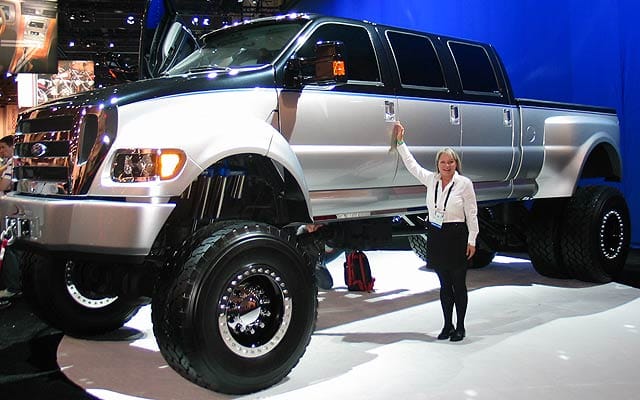Mo' Money, No Problems: Ford Seeks Sustainable Uses for Retired Greenbacks


Some of the strategies Ford is using to reduce petroleum dependence and integrate sustainable materials into designs, are downright creative. Ford was one of the few American car manufacturers not to take auto bailout money, but the company well-known for gas guzzlers like the Explorer may have other uses for unwanted government dollars: going green.
"Ford has a long history of developing green technologies because it's the right thing to do from an environmental perspective," said John Viera, Ford's global director of Sustainability and Vehicle Environmental Matters in a statement. "Now, finding alternative sources for materials is becoming imperative as petroleum prices continue to rise and traditional, less sustainable materials become more expensive."
Rising oil prices are forcing the company to look even more aggressively at avenues to replace petroleum-based products with sustainable options. Indian grass, sugar cane, dandelions, coconuts, soybeans, even shredded retired currency, are all being researched for use at Ford.
According to Ford, 8,000 to 10,000 pounds of retired paper money is shredded each day, tallying more than 3.6 million pounds each year. Instead of being used, most of the money is turned into waste for landfills or burned.
"We have been working with an ever-increasing list of collaborators – chemical companies, universities, suppliers and others – to maximize efforts and develop as many robust, sustainable materials as possible for the 300 pounds of plastic on an average vehicle," said Dr. Debbie Mielewski, technical leader of Ford's Materials Research and Innovation team.
Shredded money is being considered for interior trays and bins, said Mielewski.
Ford has experienced previous success with researching creative options for materials in their automobiles, top of the list: soybeans. All North American Ford vehicles use soybean-based cushions to save approximately 5 million pounds of petroleum annually.
"We had to come up with a product that performed as well as or better than the products we had been using for decades," said Mielewski. "But after five years, we were finally able to meet every single requirement – compression, durability, everything."
Other areas Ford has gotten creative? Using blue jeans and scrap cotton to fill the dashboards and act as sound-dampening material on some of their vehicle lines.



